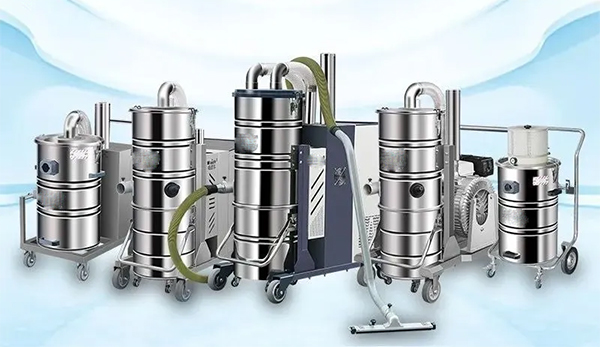How much do you know about vacuum filters?
A clogged filter silently weakens your vacuum's power, wastes your time, and risks your health—yet most users ignore it for months.
Vacuum filters1 are essential for trapping dust, allergens, and debris2—keeping your air clean and your vacuum efficient. Without regular maintenance, they quickly lose effectiveness.
vacuum filter maintenance
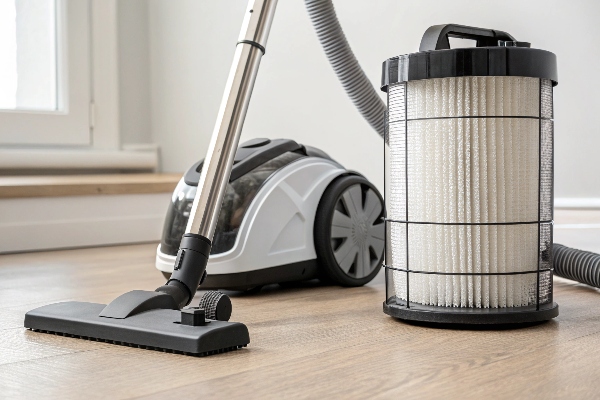
For years, I underestimated the importance of filters. I thought cleaning the dustbin was enough. Until one day, my vacuum began smelling strange, and suction dropped suddenly. That moment changed how I treat filter maintenance. And trust me, it’s not just about performance—it’s about air quality and health too.
What is the point of a vacuum filter?
Most users believe vacuuming is enough to keep a space clean. The truth is, without an effective filter, your vacuum becomes a dust spreader, not a dust remover.
Vacuum filters trap microscopic particles3 that a vacuum’s suction alone can’t capture—like allergens4, bacteria, and fine dust.
vacuum filter purpose
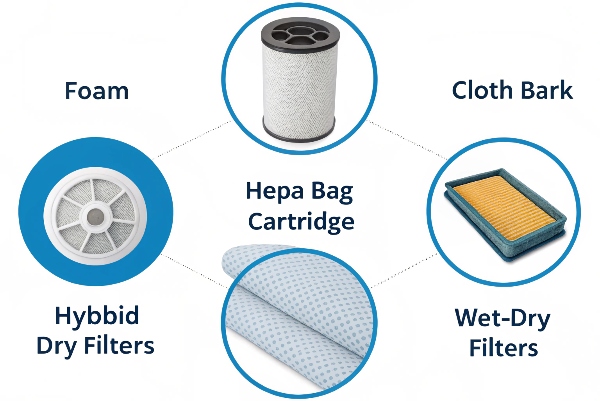
Why filters matter more than you think
Vacuum filters come in different types: foam, cloth, HEPA, cartridge, or hybrid wet & dry. Each has its role. HEPA filters, for example, trap 99.97% of particles as small as 0.3 microns. Cloth bags are good for collecting debris but need regular cleaning. Without a filter, the vacuum motor could get damaged, and more importantly, particles can escape into the air.
| Filter Type | Function | Typical Use |
|---|---|---|
| HEPA | Captures allergens & fine dust | Homes with pets/allergy-prone users |
| Cloth Bags | Traps large debris | Reusable, industrial use |
| Cartridge Filters | Compact and washable | Household and commercial |
| Wet & Dry Filters | Handles liquid and solid waste | Garage/Workshop vacuums |
How often should I change my vacuum filter?
It’s easy to forget about the filter when the vacuum “seems” fine—until one day it suddenly isn’t.
Some filters need replacing every 6 months, but others—like well-maintained HEPA filters—can last longer with proper care.
replace vacuum filter
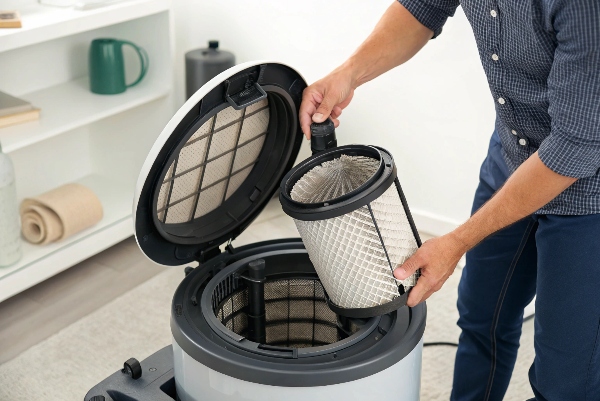
Filter lifespan by type
Different filters have different lifespans. HEPA filters can last up to a year, but only if cleaned monthly. Cloth filters should be rinsed monthly and replaced every 3 months. Cartridge filters need monthly cleaning. Wet & dry filters must be washed after every use to prevent mold and odor.
| Filter Type | Clean Frequency | Replace After |
|---|---|---|
| HEPA | Monthly | 6–12 months |
| Cloth (Non-woven) | Every use or monthly | 3 months |
| Cartridge | Monthly | 6 months |
| Wet & Dry | After every use | As needed |
If you clean filters but still notice bad odor or weak suction, it might be time to replace.
How do you know if your vacuum needs a new filter?
You’re vacuuming, but the floor isn’t cleaner. The air smells dusty. Is it the motor—or the filter?
Signs your vacuum needs a new filter include reduced suction5, bad odor6, overheating, or increased noise.
signs of filter wear
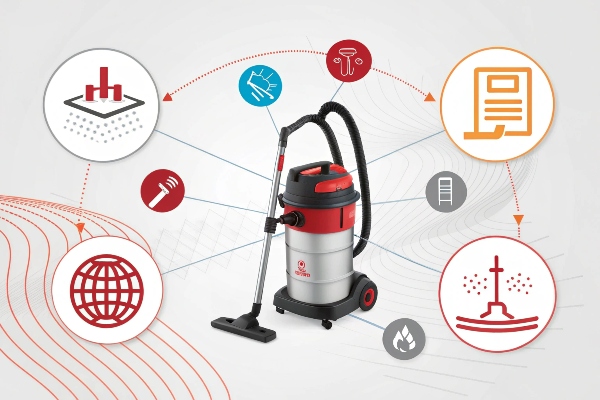
Clues your vacuum gives you
A worn-out filter causes the motor to work harder, often making it noisier. Suction drops. Sometimes, it smells like dust or mildew. In worst cases, the vacuum overheats and shuts off. These are not just signs of age—they’re clear messages from your vacuum saying: "Help me breathe!"
| Symptom | Cause | Solution |
|---|---|---|
| Weak suction | Clogged or old filter | Clean or replace filter |
| Bad smell | Dirty or wet filter | Wash or air-dry filter |
| Overheating | Motor overworking due to blockage | Replace filter |
| Noise increase | Filter restriction causing strain | Clean or replace |
If you've cleaned it and these issues persist—it’s time for a new one.
What happens if you don't change your vacuum filter?
Out of sight, out of mind? Not quite. Neglecting your vacuum filter leads to bigger, more expensive problems.
A dirty filter causes the vacuum to lose suction, release dust back into the air, and overheat, reducing its lifespan.
![consequences of not changing filter]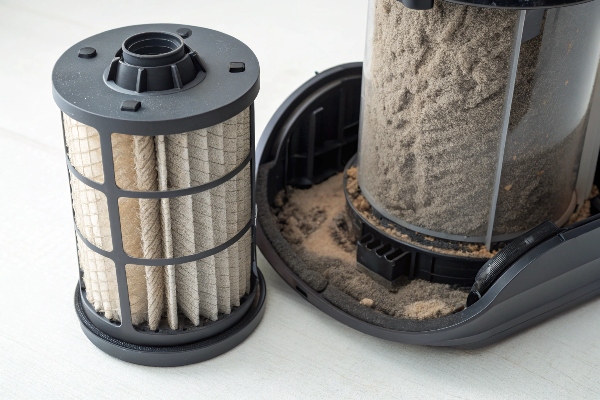
The long-term cost of skipping filter care
I once skipped filter maintenance for 8 months. My vacuum started smelling like burnt dust. The motor gave up shortly after. Replacing a filter would have cost $15. I spent $200 for a new unit. Filters protect both your machine and your health. A dirty filter forces the motor to work overtime, damages internal parts, and releases particles back into the air. This is especially harmful in homes with asthma sufferers or pets.
| Consequence | Impact |
|---|---|
| Reduced suction | Poor cleaning efficiency |
| Air pollution | Allergens recirculated |
| Motor strain | Higher energy use |
| Shorter vacuum lifespan | Expensive repairs/replacement |
The lesson is simple: filter care isn't optional. It’s essential.
Conclusion
Changing your vacuum filter is not just routine—it’s critical for cleaner air, better performance, and long-term savings.
-
Understanding the benefits of vacuum filters can help you maintain a cleaner home and improve your vacuum's efficiency. ↩
-
Learn how vacuum filters work to trap harmful particles, ensuring a healthier living environment for you and your family. ↩
-
Understanding microscopic particles is crucial for improving indoor air quality and health. Explore this link to learn more. ↩
-
Reducing allergens in your home can significantly improve your health. Discover effective strategies by exploring this resource. ↩
-
Understanding the signs of reduced suction can help you maintain your vacuum's performance and extend its lifespan. ↩
-
Exploring the causes of bad odors in vacuums can help you identify issues and keep your home smelling fresh. ↩

